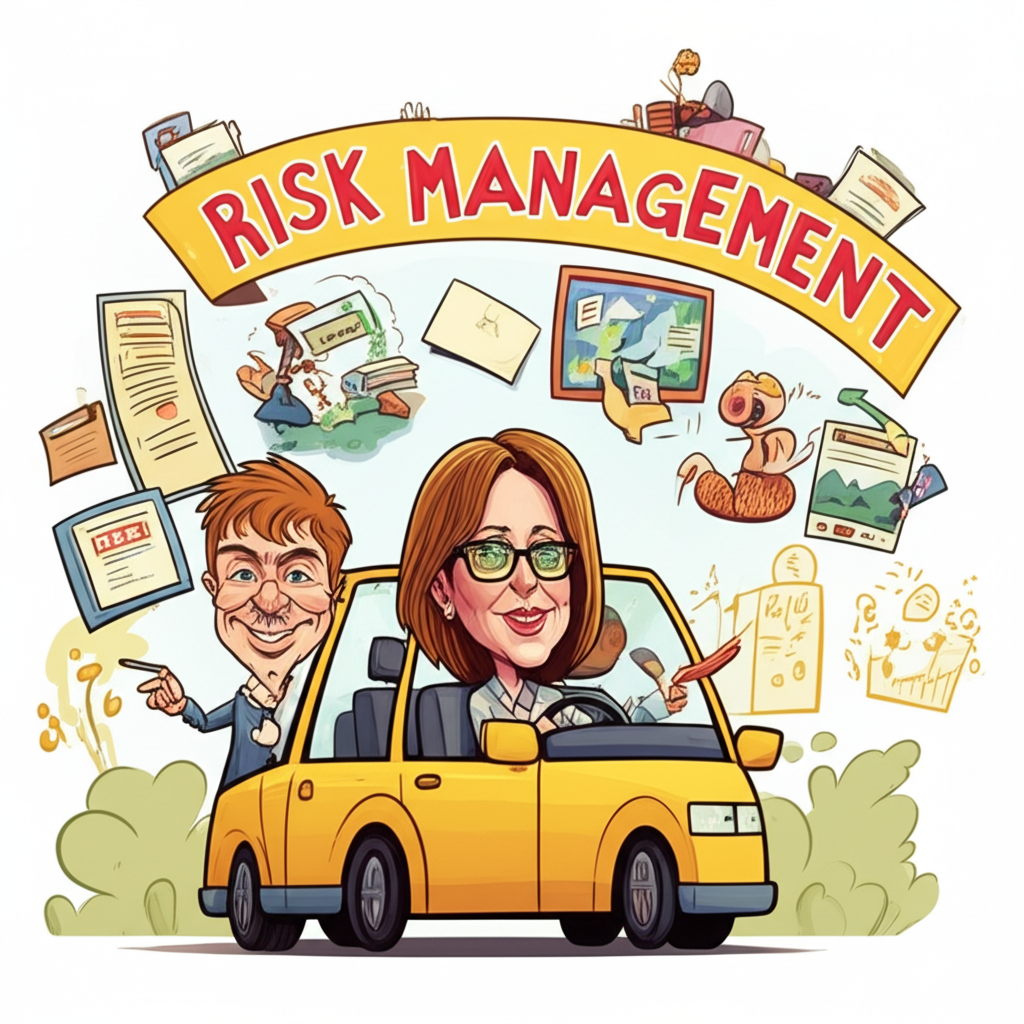
Estate Planning Basics: Your Comprehensive Guide to Securing Your Future and Protecting Your Loved Ones
Are you someone who believes estate planning is only for the ultra-rich, or for those nearing the end of their lives? Think again! Estate planning is a crucial step for everyone who wants to ensure their wishes are honored, their loved ones are protected, and their legacy is preserved. It’s about taking control of your future, no matter your age or current financial standing.
This comprehensive guide will demystify estate planning, breaking down the basics into easy-to-understand concepts. By the end, you’ll have a clear understanding of why it’s so important and how you can get started on securing peace of mind for yourself and your family.
What Exactly Is Estate Planning?
At its core, estate planning is the process of arranging for the management and disposal of your assets (everything you own) and property after your death, or if you become incapacitated (unable to make decisions for yourself). But it’s far more than just writing a will.
Think of it as creating a personalized blueprint for your future. It involves making decisions about:
- Who will inherit your assets: Your money, property, investments, and personal belongings.
- Who will manage your financial affairs: If you can’t do so yourself due to illness or injury.
- Who will make healthcare decisions for you: If you’re unable to communicate your wishes.
- Who will care for your minor children: If both parents pass away.
- How to minimize taxes, court fees (probate), and delays: Ensuring your loved ones receive their inheritance efficiently.
- Your final wishes: Regarding funeral arrangements or charitable contributions.
In essence, estate planning is about planning for the inevitable and the unexpected, so that your intentions are clear and your family is spared unnecessary stress, confusion, and potential legal battles during an already difficult time.
Why Is Estate Planning So Important?
Many people put off estate planning, assuming they have plenty of time or that it’s too complicated. However, the benefits of having a well-thought-out estate plan are immense and touch every aspect of your life and the lives of those you care about.
Here’s why you absolutely need an estate plan:
- Ensures Your Wishes Are Honored: Without a plan, state laws will dictate how your assets are distributed, who cares for your children, and who makes decisions on your behalf. This might be completely different from what you would have wanted.
- Protects Your Loved Ones: It provides clear instructions, reducing the burden, stress, and potential for conflict among family members during a time of grief. They won’t have to guess what you wanted.
- Provides for Minor Children: If you have children, an estate plan allows you to name guardians who will raise them according to your values and ensure their financial well-being.
- Avoids or Minimizes Probate: Probate is the legal process of proving a will in court. It can be lengthy, public, expensive, and stressful. A good estate plan can help your assets bypass or significantly reduce the need for probate.
- Minimizes Taxes: Strategic estate planning can help reduce or even eliminate estate taxes, allowing more of your wealth to pass directly to your heirs.
- Manages Incapacity: Life can be unpredictable. An estate plan addresses what happens if you become too ill or injured to manage your own affairs, ensuring someone you trust can step in.
- Provides Peace of Mind: Knowing that your affairs are in order and your family is protected offers invaluable peace of mind.
Key Components of a Basic Estate Plan
While a comprehensive estate plan can be highly customized, several core documents form the foundation for most people. Understanding these will give you a solid starting point.
1. Last Will and Testament (Your "Will")
Often considered the cornerstone of an estate plan, a Last Will and Testament is a legal document that outlines your final wishes regarding the distribution of your assets.
- Appointing an Executor: You name an executor (also called a personal representative) who is responsible for managing your estate, paying any debts, and distributing your assets according to your instructions.
- Naming Beneficiaries: You specify who will inherit your property, money, and other assets. These individuals or organizations are called beneficiaries.
- Designating Guardians for Minor Children: If you have minor children, your will is the place to name legal guardians who will care for them if both parents pass away. This is one of the most critical aspects for young families.
- Gift Specific Items: You can specify who receives particular items, such as family heirlooms, artwork, or jewelry.
Important Note: A will only takes effect after your death and typically goes through the probate process.
2. Trusts
A trust is a legal arrangement where you (the "grantor" or "settlor") transfer assets to a third party (the "trustee") to hold and manage for the benefit of specific individuals (the "beneficiaries"). Trusts are incredibly flexible and can serve many purposes.
Common types of trusts include:
- Revocable Living Trust: This is a popular type of trust because you can change or cancel it during your lifetime. Assets placed in a revocable living trust typically avoid probate, which can save time, money, and ensure privacy. You can usually act as your own trustee while alive and name a successor trustee to take over upon your incapacity or death.
- Irrevocable Trust: Once created, an irrevocable trust generally cannot be changed or canceled without the consent of the trustee and beneficiaries. These trusts offer stronger asset protection from creditors and can be useful for reducing estate taxes, but they come with less flexibility.
- Testamentary Trust: This type of trust is created by your will and only takes effect upon your death, after your will goes through probate. It’s often used to manage assets for minor children or beneficiaries with special needs.
Key Benefit of Trusts: Asset protection, avoiding probate, providing control over how and when assets are distributed (e.g., distributing funds to a child at certain ages).
3. Durable Power of Attorney (Financial)
A Durable Power of Attorney (POA) is a legal document that allows you to appoint someone (your "agent" or "attorney-in-fact") to make financial and legal decisions on your behalf if you become unable to do so.
- Scope: It can grant broad powers (e.g., managing bank accounts, paying bills, selling property) or specific powers.
- Durability: "Durable" means the power remains in effect even if you become incapacitated. Without it, your family might have to go to court to get a conservatorship or guardianship, which is a public, costly, and time-consuming process.
4. Healthcare Directives (Living Will & Healthcare Proxy)
These documents allow you to make your medical wishes known and appoint someone to make healthcare decisions for you if you cannot.
- Living Will (Advance Directive): This document specifies your wishes regarding medical treatment, especially end-of-life care. It dictates what medical interventions you do or do not want (e.g., artificial respiration, feeding tubes, resuscitation) if you are terminally ill or permanently unconscious.
- Durable Power of Attorney for Healthcare (Healthcare Proxy or Medical Power of Attorney): This document designates a trusted individual (your "agent" or "proxy") to make medical decisions for you if you are unable to communicate them yourself. This person will ensure your living will is followed and make other medical decisions based on your best interests and stated wishes.
5. Beneficiary Designations
Often overlooked, beneficiary designations on accounts like life insurance policies, retirement accounts (401(k)s, IRAs), and annuities are incredibly powerful.
- Bypasses Probate: Assets with named beneficiaries typically pass directly to those individuals upon your death, outside of your will and the probate process.
- Review Regularly: It’s crucial to keep these designations up-to-date, especially after major life events like marriage, divorce, or the birth of a child. If your primary beneficiary passes away and you haven’t named a contingent beneficiary, these assets might end up going through probate.
6. Letter of Instruction (Letter of Intent)
While not a legally binding document like a will or trust, a Letter of Instruction is incredibly helpful for your executor and family. It provides practical, non-legal guidance and information, such as:
- Location of important documents (will, trust, deeds, insurance policies)
- Account numbers and login information for online accounts
- Contact information for your attorney, financial advisor, and other professionals
- Funeral or memorial service preferences (e.g., burial vs. cremation, specific songs)
- Personal messages to loved ones
- Instructions for pets
The Probate Process: What You Need to Know
When someone passes away with a will, their estate generally goes through probate. Probate is the legal process that:
- Validates the Will: Proves the will is authentic and legally binding.
- Appoints the Executor: Formally authorizes the executor named in the will (or an administrator if there’s no will) to manage the estate.
- Identifies and Gathers Assets: Locates all the deceased person’s property.
- Pays Debts and Taxes: Ensures all creditors are paid before distribution.
- Distributes Assets: Distributes the remaining assets to the beneficiaries as outlined in the will or by state law.
Why People Try to Avoid Probate:
- Time-Consuming: Probate can take months or even years, especially for complex estates or if there are disputes.
- Costly: Legal fees, executor fees, court costs, and appraisal fees can significantly reduce the inheritance.
- Public Record: Probate proceedings are generally public, meaning details about your assets, debts, and beneficiaries become accessible to anyone.
- Lack of Privacy: Your financial affairs become public knowledge.
Effective estate planning, particularly through the use of trusts and proper beneficiary designations, can help your loved ones avoid or minimize the burdens of probate.
Common Estate Planning Myths Debunked
Let’s address some common misconceptions that often prevent people from getting started:
- Myth 1: "Estate planning is only for the wealthy."
- Reality: False! Everyone has an "estate," no matter how small. If you own a car, have a bank account, or have personal belongings, you have an estate. Estate planning protects your assets and, more importantly, your loved ones, regardless of your net worth.
- Myth 2: "I’m too young to worry about estate planning."
- Reality: Accidents and illnesses can happen at any age. If you have minor children, a spouse, or even just want to ensure your wishes are known regarding your healthcare, you need an estate plan now.
- Myth 3: "A will is all I need."
- Reality: While a will is essential, it’s just one piece of the puzzle. Without healthcare directives or powers of attorney, your family might face significant legal hurdles if you become incapacitated. And a will alone doesn’t avoid probate.
- Myth 4: "Once it’s done, it’s done forever."
- Reality: Your estate plan is a living document. It needs to be reviewed and updated periodically, especially after major life events.
Steps to Get Started with Your Estate Plan
Ready to take control of your future? Here’s how to begin your estate planning journey:
-
Take Inventory of Your Assets and Debts:
- List all your property: real estate, bank accounts, investment accounts, retirement accounts, life insurance policies, valuable personal belongings (jewelry, art, vehicles).
- List all your debts: mortgages, loans, credit card balances.
- Gather relevant documents: deeds, titles, account statements.
-
Identify Your Goals and Wishes:
- Who do you want to inherit your assets?
- Who do you want to be guardians for your minor children?
- Who do you trust to make financial and healthcare decisions for you if you can’t?
- Do you have any specific wishes for your funeral or memorial?
- Are there any charities you wish to support?
-
Choose Your Fiduciaries Wisely:
- Executor: The person who manages your estate.
- Trustee: The person who manages your trust assets.
- Guardian: The person who cares for your minor children.
- Agent/Attorney-in-Fact: The person who makes financial and/or healthcare decisions for you.
- Choose individuals who are trustworthy, responsible, and capable, and always name backups.
-
Gather Important Documents:
- Birth certificates, marriage certificates, divorce decrees.
- Social Security cards.
- Previous wills or trust documents.
- Deeds to property, vehicle titles.
- Insurance policies.
- Investment and bank account statements.
-
Consult with an Estate Planning Attorney:
- While there are online DIY options, estate planning involves complex legal matters. State laws vary significantly, and a misstep can have serious consequences.
- An experienced estate planning attorney can:
- Explain all your options.
- Draft legally sound documents tailored to your specific situation and state laws.
- Help you minimize taxes and avoid probate.
- Ensure your plan aligns with your unique goals and family dynamics.
Review and Update Your Plan Regularly
Life is dynamic, and your estate plan should be too. It’s not a one-and-done task. You should review your estate plan every 3-5 years or whenever a significant life event occurs, such as:
- Marriage, divorce, or remarriage
- Birth or adoption of a child or grandchild
- Death of a spouse, child, or other beneficiary/fiduciary
- Significant change in financial status (e.g., inheritance, major purchase, bankruptcy)
- Changes in tax laws
- Moving to a different state
- Changes in health
Keeping your plan updated ensures it continues to reflect your wishes and remains effective.
Conclusion: Don’t Delay – Secure Your Future Today
Estate planning is one of the most thoughtful and responsible gifts you can give yourself and your loved ones. It’s about empowering yourself with control, providing clarity and protection for your family, and ensuring your legacy is handled exactly as you intend.
Don’t leave your family’s future to chance or the complexities of the legal system. Take the first step today. Consult with a qualified estate planning attorney to discuss your unique situation and begin crafting a plan that brings you and your family peace of mind for years to come. Your future, and theirs, depends on it.




Post Comment